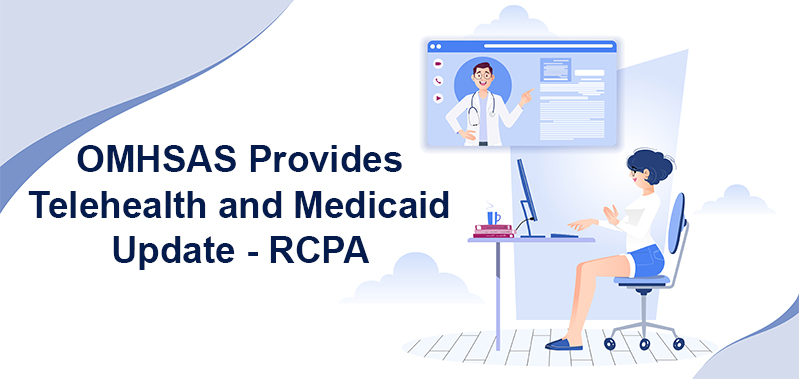
OMHSAS Provides Telehealth and Medicaid Update - RCPA
In the wake of the COVID-19 pandemic, the landscape of healthcare delivery has undergone a profound transformation. Among the most notable shifts is the widespread adoption of telehealth and Medicaid services. The Office of Mental Health and Substance Abuse Services (OMHSAS), in conjunction with the Rehabilitation and Community Providers Association (RCPA), has been at the forefront of this revolution, ensuring that individuals in need of mental health and substance abuse services have continued access to care, regardless of physical barriers.
What’s the OMHSAS Update?
RCPA recently participated in an OMHSAS telehealth webinar, shedding light on essential Federal payment conditions and guidelines regarding the delivery of telehealth services. The webinar, held on January 29, emphasized the requirement that physicians or clinicians must be physically present in the office, or the client must be present, during telehealth sessions to meet Federal payment conditions. This "4 walls" statute, outlined in the current OMHSAS Telebehavioral Health Bulletin, is a mandatory Federal Medicaid payment condition that cannot be waived.
The webinar aimed to achieve two objectives: elucidating the "4 walls" requirements and soliciting vital feedback from providers regarding the potential impacts, challenges, and barriers to accessing services for consumers and families. Despite the ongoing pandemic and the widespread adoption of telehealth, this Medicaid standard remains in effect. RCPA urges provider members to review their operating practices to ensure compliance with these regulations.
Moving forward, RCPA will remain engaged in advocacy efforts to address barriers to telehealth access and promote policies that facilitate the delivery of essential services. Through collaboration and advocacy, RCPA aims to create a healthcare environment that prioritizes accessibility and quality of care for all individuals, regardless of their geographic location or circumstances.
Understand the Impact of this Update
Telehealth, the delivery of healthcare services remotely through telecommunications technology, has emerged as a vital tool in ensuring continuity of care while minimizing the risk of viral transmission. OMHSAS, recognizing the importance of telehealth in providing mental health and substance abuse services, has taken proactive steps to expand its implementation across the state of Pennsylvania.
One of the primary ways OMHSAS has facilitated the transition to telehealth is through updates to Medicaid policies. These updates have been instrumental in expanding coverage for telehealth services, ensuring that individuals who rely on Medicaid for their healthcare needs can access essential mental health and substance abuse services remotely. By removing barriers to reimbursement and expanding the list of covered services, OMHSAS has made it easier for providers to offer telehealth options to their clients.
Furthermore, OMHSAS has invested in technological infrastructure to support the delivery of telehealth services. This includes providing guidance on selecting and implementing telehealth platforms that comply with privacy and security regulations and ensuring that patient information remains protected during virtual consultations. Additionally, OMHSAS has offered training and resources to providers to help them navigate the technical and logistical challenges associated with telehealth delivery.
The benefits of telehealth extend beyond the realm of accessibility. Telehealth services have been shown to improve patient outcomes by increasing engagement and reducing barriers to care. Individuals who may have otherwise faced challenges accessing traditional in-person services, such as transportation issues or scheduling conflicts, can now receive timely and convenient care through telehealth. This has the potential to lead to better treatment adherence and overall health outcomes for individuals receiving mental health and substance abuse services.
Moreover, telehealth can potentially address disparities in access to care, particularly in rural and underserved communities. By leveraging telecommunication technology, OMHSAS aims to bridge the gap between urban and rural areas, ensuring that all individuals, regardless of their geographic location, have access to high-quality mental health and substance abuse services.
In addition to expanding access to care, telehealth has also proven to be a cost-effective solution. By reducing the need for physical infrastructure and streamlining administrative processes, telehealth can lead to significant cost savings for both providers and patients. This is particularly beneficial for individuals who may face financial barriers to accessing healthcare services.
Looking ahead, OMHSAS remains committed to further enhancing and expanding telehealth services. This includes ongoing evaluation of telehealth policies and regulations to ensure that they align with evolving healthcare needs and technological advancements. Additionally, OMHSAS will continue to collaborate with providers, policymakers, and stakeholders to identify opportunities for innovation and improvement in the delivery of mental health and substance abuse services through telehealth.




